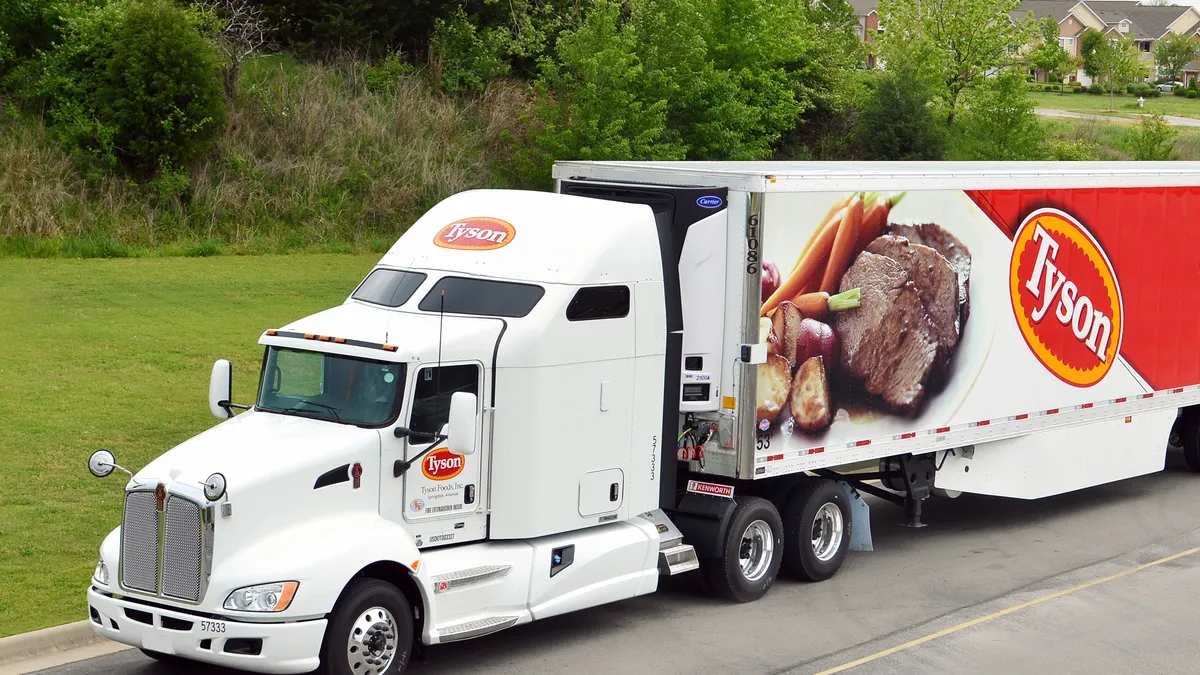Dive Brief:
- More than half of Tyson Food Inc.'s application stack is custom-made, but the company wants to move toward more standard processes while holding onto custom solutions for things that offer a competitive advantage, said CTO Scott Spradley, in an interview with The Wall Street Journal. Spradley joined Tyson Foods last June after a two-year stint as CIO of HPE, overseeing the separation of IT functions when the company split into HPE and HP Inc.
- In the wake of a multibillion dollar acquisition deal, the company is looking for smaller deals to drive growth, including boosting efficiency through technology, said CEO Tom Hayes in an interview with Food Dive. It's turning an eye to the startup market for investment. In February, the company teamed up with business incubators in Silicon Valley and Chicago.
- The company is still in the midst of its digital transformation. In November, Tyson Foods expanded its offices in Springdale, Arkansas, growing the IT team working on transitioning the company to cloud-based, modern technology, according to a company announcement.
Dive Insight:
The food production and services market is facing heavy digital transformation as technologies such as artificial intelligence, blockchain and mobile applications, among others, take off. If Tyson Foods wants to hold onto its ranking as the No. 1 food production company, steady investment in its technology portfolio is a must.
Tyson's dipped into the blockchain market with other food suppliers, including Walmart and Kroger, last year with an IBM partnership to bring the ledger technology to data management systems for facilitated food traceability across disparate digital systems and complex supply chains.
But hyped pilot projects are not the bread and butter of the company, at least not yet, and the improvements set for its current application stack highlight a problem many do-it-yourself companies have faced.
When companies build or buy a custom solution, they can decrease fears of irrevocably tying themselves to a proprietary system and becoming dependent. For example, OkCupid primarily uses open source or internally built technology solutions and has been hesitant to move to commercial systems because its tech team understands what they built better, according to CIO Alex Dumitriu.
But custom solutions can make it harder — and potentially more expensive — for a company to change between or move to new applications, platforms or providers. Standard processes for most workloads can be easier to manage and transition during digital transformations, and new technology workers can more quickly take on digital systems they are familiar with.












